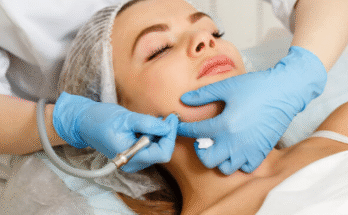Acne is one of the most common skin concerns worldwide, affecting people of all ages.
Whether it shows up occasionally or becomes a long-term challenge, it can take a toll on confidence and comfort.
With so many products available today, choosing the right anti-acne skincare can feel overwhelming.
The good news is that by understanding your skin and paying attention to ingredients, you can build a routine that supports clearer, healthier-looking skin.
Understanding Your Skin First
Before looking at products, it is important to understand what your skin really needs. Acne-prone skin can be oily, dry, or a mix of both. Some people also experience sensitivity, which means their skin may react quickly to strong formulas. Knowing your skin type helps narrow down your options and prevents unnecessary irritation.
For example, oily skin often benefits from lightweight, oil-free formulas that reduce excess sebum without over-drying. Dry skin, on the other hand, may need acne treatments that also include hydrating ingredients. If you have sensitive skin, it is best to look for products labeled “gentle,” “non-comedogenic,” or “dermatologist-tested.”
Key Ingredients That Make a Difference
Many anti-acne products share certain active ingredients that target breakouts in different ways. Learning about these ingredients helps you make informed choices.
Salicylic acid is one of the most common acne-fighting ingredients. It works by exfoliating inside the pores, which helps prevent clogs that can turn into pimples or blackheads. Products with low concentrations of salicylic acid are often well tolerated and can be used daily.
Benzoyl peroxide is another well-known option. It helps fight bacteria that contribute to acne while reducing inflammation. Because it can be drying, it may be best to use it in a targeted way, such as a spot treatment, rather than on the entire face.
Niacinamide has become popular for its ability to calm redness, regulate oil, and support the skin barrier. It is often less irritating than stronger treatments and can be combined with other ingredients.
Sulfur and tea tree oil are additional choices that may help with mild breakouts. While natural options can be appealing, it is still important to test them carefully, as essential oils can sometimes irritate sensitive skin.
Hyaluronic acid and ceramides, although not directly treating acne, are excellent companions in skincare routines. They keep the skin hydrated and balanced, which is important because overly dry or stripped skin can sometimes produce more oil in response.
Reading Labels the Smart Way
Skincare labels can be confusing, filled with marketing terms and scientific names. To make things easier, focus on a few key points when reading product packaging. Look for words like “non-comedogenic,” which means the product is formulated to avoid clogging pores. Choose “oil-free” if you are prone to shine or excess oil. If your skin is sensitive, look for “fragrance-free,” since added perfumes can sometimes trigger irritation.
It is also helpful to notice the concentration of active ingredients. Stronger does not always mean better. For instance, a high concentration of benzoyl peroxide may cause dryness, while a moderate level can deliver results with fewer side effects.
Patch Testing for Safety
Before introducing any new product into your routine, patch testing is a wise step. Apply a small amount of the product on an area such as the jawline or inner arm, then wait 24 hours to see how your skin reacts. This step reduces the risk of irritation or unexpected breakouts and is especially important for those with sensitive or combination skin.
Building a Gentle Routine
Acne care is not only about picking one strong product; it is about building a routine that supports the skin consistently. A good starting point includes a gentle cleanser, a treatment product, and a moisturizer. Sunscreen is also essential during the day, especially if you use ingredients that make your skin more sensitive to sunlight.
Cleansing twice a day is usually enough. Over-cleansing can strip natural oils and leave the skin feeling tight or irritated. After cleansing, apply a treatment with your chosen active ingredient, such as salicylic acid or niacinamide. Follow up with a moisturizer, even if you have oily skin, because hydration helps balance oil production. During the daytime, finish with a sunscreen labeled “non-comedogenic” to protect your skin.
Avoiding Common Mistakes
Many people with acne-prone skin make the mistake of using too many strong products at once. Layering several active ingredients without guidance can cause irritation, redness, and even more breakouts. It is usually better to start with one treatment product, monitor how your skin responds, and adjust gradually.
Another mistake is skipping moisturizer. Even oily skin needs hydration. Choosing a lightweight, gel-based moisturizer can provide the right balance without feeling greasy.
It is also important to resist the urge to pick at blemishes. While tempting, touching or squeezing pimples can spread bacteria and increase the chance of scarring. Let products do the work instead.
Seeking Professional Guidance
While many over-the-counter products work well for mild to moderate breakouts, sometimes acne can be stubborn. If you have severe or persistent acne, consulting a dermatologist is the best step. A professional can recommend prescription treatments or guide you toward the most effective routine for your skin type.
Patience and Consistency Matter
Clearer skin rarely happens overnight. Acne treatments often take several weeks before showing visible improvement. During this time, consistency is key. Sticking to a routine, even when results are not immediate, increases your chances of success. If you keep switching products too quickly, your skin may become irritated and confused by the constant changes.
Supporting Healthy Skin from Within
Skincare products are powerful tools, but lifestyle habits also play a role in supporting healthier skin. Staying hydrated, eating a balanced diet, and getting enough sleep can positively affect how your skin behaves. Stress management is also important, as high stress levels sometimes contribute to breakouts.
Conclusion
Choosing anti-acne skincare products does not have to be complicated. By understanding your skin type, learning about effective ingredients, and building a gentle routine, you can create a skincare approach that feels manageable and supportive. Remember that balance is better than harshness, patience is better than rushing, and your skin deserves kindness. With the right care and consistency, healthier-looking skin is possible for everyone.

